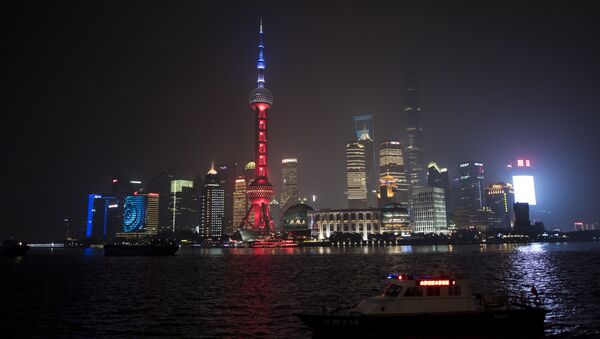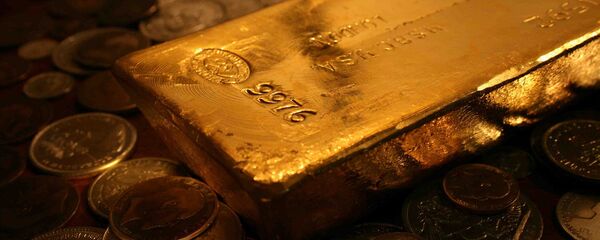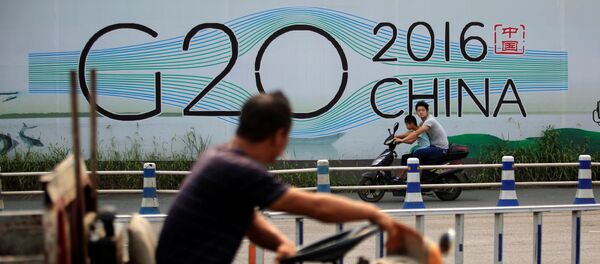China has transformed into the world's second largest economy and the world's largest trading nation with the Chinese currency, remninbi (RMB), ready for "showtime," Tom McGregor, Commentator and Editor at CNTV (China Network Television), emphasized in his interview with Sputnik.
On October 1, 2016 the International Monetary Fund (IMF)'s Special Drawing Rights (SDR) basket will be officially expanded to include the yuan (renminbi, RMB).
SDRs are regarded as "safe reserve assets," McGregor noted, adding that Central Banks rely on such currencies to safeguard financial stability.
Why the EU Benefits From Inclusion of the Yuan in IMF's SDR Basket
To ensure the RMB could be accepted by the IMF, the People's Bank of China (PBOC) has recently made proper adjustments.
Why did the IMF support China's renminbi internationalization project and the inclusion of the yuan in the SDR basket? Is it possible to say that the European financial elite are seeking to diminish the US dollar's influence?
"A freely-convertible yuan makes it much easier for those doing business with Chinese companies to have more convenient access to China's currency. Previously, all international trades had to be converted via US dollars, but that brings added costs to traders and investors, who may come from different countries, and do not have easy access to US dollars," McGregor explained.
"The EU benefits as well with the inclusion of China's yuan in the IMF's SDR currency basket. Instead of buying up US dollars to arrange business deals with Chinese companies, European companies can more easily switch to the Chinese yuan. Meanwhile, China is developing a new international bank-wire system that no longer uses SWIFT (Society for Worldwide Interbank Financial Telecommunication) and developing a new technology called CIPS," he told Sputnik.
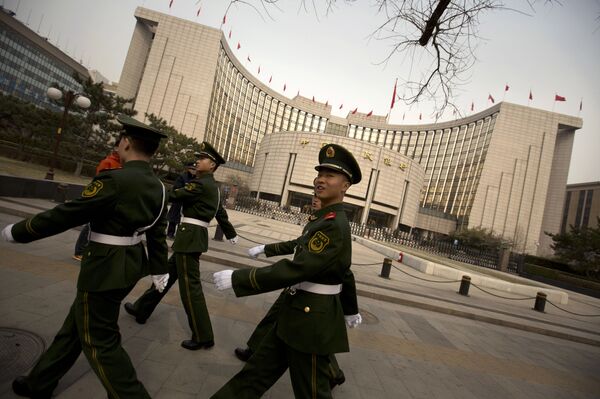
Indeed, back in October 2015, Beijing launched the CIPS — the China International Payments System — as an alternative to the Western SWIFT payment system.
McGregor underscored that China's cross-border international payment system allows businesses operating in Asia and Europe to wire RMB funds to bank accounts in China. Previously such transactions were only carried out via off-shore bank accounts — primarily in London and Hong Kong — through SWIFT.
China's 'Free Trade Status'
China became a member of the WTO in December 2001. In accordance with China's WTO Accession Protocol, the country is due to be granted "free market status" no later than December 2016, McGregor remarked.
Is there any possibility that the US leadership or ASEAN nations will throw a wrench in the works?
"Washington and EU leaders want to prevent China from gaining "free market status," but their efforts will cause more harm than good, since the IMF, WTO and World Bank (WB) can impose tough penalties on countries that refuse to recognize China's 'free market status,' starting in 2017. The US and EU are engaging in bluffs, hoping Beijing will back down and act more subservient to them, but instead the strategy will backfire, since China won't buckle under and would call their bluffs. There will be no more "Red Lines" threats after Obama departs from the White House early next year," McGregor told Sputnik.
On the other hand, "the ASEAN economy is enjoying a stage of rapid expansionand their governments are becoming more pragmatic," the journalist pointed out.
"China's manufacturing industry is facing more challenges and Chinese factories are looking to move to Southeast Asian countries on account of lower labor and operational costs. Countries in ASEAN are eager to engage in more economic cooperation, as well as cross-border trade and investments with China, so they have no real motive to 'throw a wrench in the works,' when it comes to playing games on China's 'free market status'," the CNTV editor elaborated.
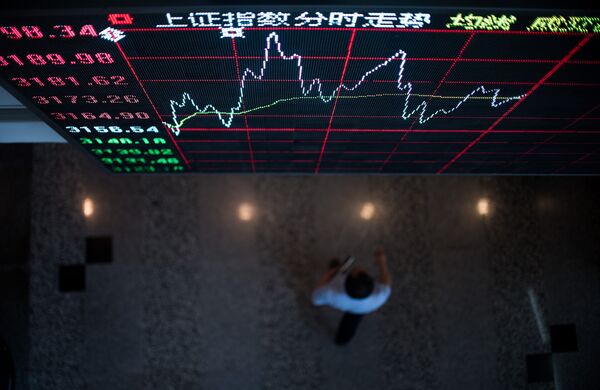
Rothschilds, Other Private Bankers Expanding Operations in China
Many prominent European private investors are strengthening their ties with China. For instance, La Compagnie Financiere Edmond de Rothschild (LCFR) started operations in Shanghai in 2006. Does it mean that Asia is steadily becoming the center of global financial activity?
"It's inevitable that more European financial institutions will expand operations into China, especially Shanghai, which seeks to become the next 'New York of Asia' and a financial capital powerhouse. Shanghai stands poised to rise to greater heights. It's a coastal city, near South Korea, Japan and the ASEAN countries," McGregor answered.
"Look to see Hong Kong dwindle in influence as an Asian global financial hub; Shanghai will benefit as more bankers and financiers leave Hong Kong and search for greener pastures in Asia, such as in the cities of Shanghai, Singapore and even Jakarta. Most major multinational European banks have already opened up branches either in Shanghai or elsewhere in China. Those who have not arrived will come sooner or later, because to ignore China would not be to their financial benefit," he stressed.
Why 'One Belt, One Road' Project is Superior to TTIP
Much in the same vein, many Western governments jumped on the China-led AIIB's (Asian Infrastructure Investment Bank) bandwagon last year.
Why did EU member states rush to join the AIIB regardless of Washington's vocal displeasure?
"Why look a gift horse in the mouth? The AIIB is a gift for EU member states, since most liquid funds originate from China. To say no would be like saying no to a gift from a friend or family member," the CNTV editor underscored.
Do EU member states see China's New Silk Road initiative as an alternative to the controversial TTIP (Transatlantic Trade and Investment Partnership) project being championed by the US?
"The 'Belt and Road' is superior to TTIP (Trans-Atlantic Trade and Investment Partnership) as a global economic cooperation project," McGregor stressed.
"In the 'Belt and Road,' a country can say, "yes or no" when deciding to build a new infrastructure project in their country with China's help. If they say yes, the country will get more infrastructure, such as roads and bridges. If they say "no" that's fine, because that would mean more available cash funding for another country to use for their 'Belt & Road' projects," he explained.
"The TTIP is not about building more roads, it's about Big Business seizing control of all cross-border trade between the US and EU nations. The TTIP enforces very strict trade rules that could lead to more bankruptcies of small companies and exporters," the CNTV editor emphasized.
The views expressed in this article are solely those of the author and do not necessarily reflect the official position of Sputnik.

